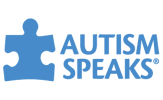Transitional Planning
The transition from school to adulthood is a process for all students, regardless of their abilities or diagnoses that begins when students and their parents begin planning for their post high school life. Factors to consider include post-secondary education, the development of career and vocational skills, as well as the ability to live independently. Most teachers will ask students about their interests and develop goals to insert into the student’s Individualized Educational Program (IEP). Then they may be forgotten until the next IEP.
At NCPS we consider transitional planning to be the foundation for the skills needed to negotiate life as an adult. We ask ourselves what is necessary to be an independent adult and what building blocks are necessary to achieve this independence? Then we break these complex skills into curriculum that becomes more complex as our students get older.
Focusing on daily living skills is an important aspect of transition planning. Daily living skills such as personal hygiene, manners and etiquette, daily chores are a focus for all of the NCPS students. Learning how to follow directions, independent task completion, organization and time management skills are an essential part of being successful as an adult, so it is imperative that students are exposed to these concepts and begin practicing these expectations as soon as possible.
Providing a specialized curriculum that addresses communication, self-advocacy and social skills needs must be addressed to begin the transition into adulthood. These areas include requesting more time to complete assignments, asking for assistance, learning when a “break” may be necessary, asking for clarification, learning to work in small groups and learning to give presentations.
Another key component for transitional planning is exploring personal interests and preferences. Students can develop their interests, abilities and self-advocacy skills by participating in weekly vocational activities and clubs, as well as by participating in daily academic lessons and activities.
The key to a successful transition plan is for the student to feel prepared for the new setting after high school and to be aware of the support services that are available. Perhaps even more important is acquiring the judgment to make sound decisions about daily life. NCPS is committed to guide our students through each step of their transition to independence.







